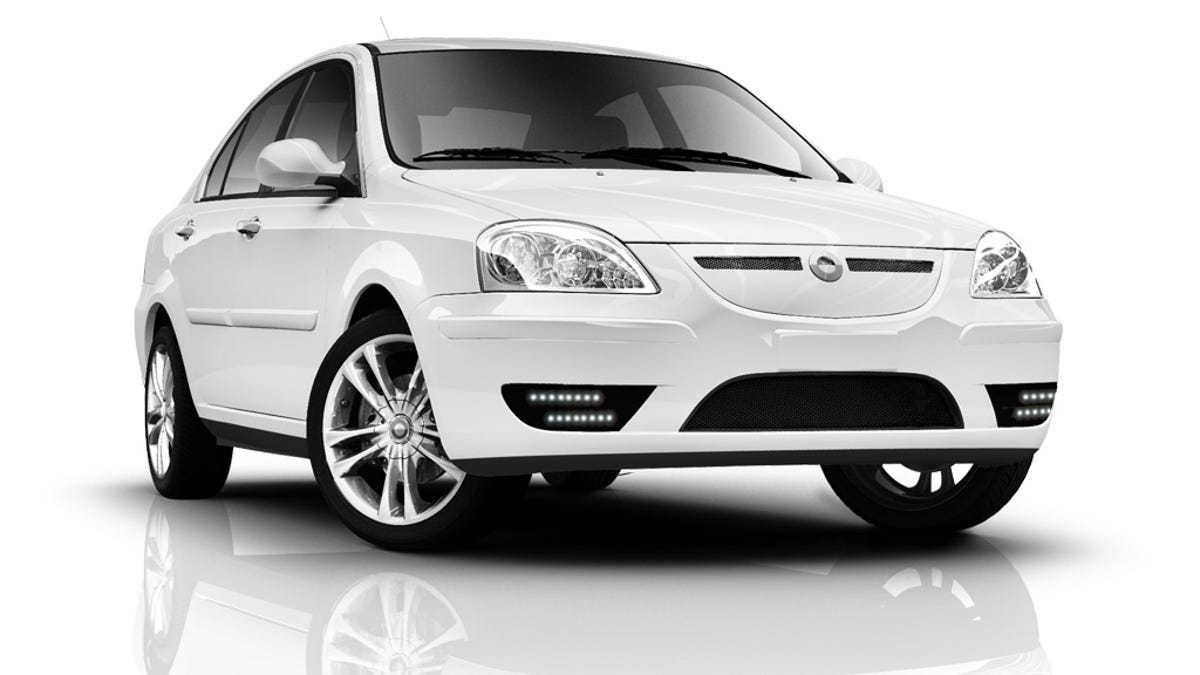EV startup has big plans--but lots of missing pieces
Automotive News reports on upstart electric car maker Coda.

LOS ANGELES--Coda Automotive Inc. has big plans.
It says it will start selling a plug-in electric vehicle in California this year--never mind that the company, which plans to assemble the car from a body and batteries from China, doesn't have an assembly plant yet, or even a site for it.
Coda's proposed electric car is nothing special to look at. Its range and price--in the low $30,000s after incentives--are similar to those of competitors, which have track records, dealer networks and plants.
And the results of its safety crash tests, now under way, aren't known.
Despite all these missing pieces, Kevin Czinger, president of the startup company, sees Coda's car, and the advent of electric vehicles in general, as the next big thing.
"This is not a new car model," Czinger told Automotive News. "This is a new disruptive technology."
Czinger, 51, has worked at Goldman Sachs, an online grocery delivery business, and as a car mechanic. He pitches the car as an everyman's EV. But Coda appears to be using the relatively nondescript car, derived from a dated Chinese vehicle, as a launching pad for its battery technology.
The Santa Monica company plans to sell its battery system to automakers--and others. Coda's plans call for capacity to make 20,000 battery packs in China by 2011, to allow for outside sales. "It also has utility applications like wind power and solar," Czinger said. He wouldn't disclose the battery's cost.
A year ago, Czinger said Coda would have capacity to build 2,700 vehicles in 2010 and up to 20,000 a year after that. Now he says Coda will deliver 14,000 vehicles in 2011 and won't predict 2012 sales.
The car body will come from China's Hafei Motor Co. The body is derived from Hafei's Saibao, a small sedan built on an old Mitsubishi Motors Corp. platform. Hafei sold 3,900 Saibao models in 2009.
Czinger said Coda has upgraded the design to meet U.S. safety requirements and has hired experienced auto executives to oversee manufacturing. Final assembly would take place in a yet-to-be-built plant in California. Coda is negotiating with local governments for a site.
"We need some incentive," Czinger said. But he insists that he can launch production rapidly once he has a site.
Another thing Coda doesn't have: dealers.
But it says it doesn't want any. It plans to sell its cars online, with service provided by contractors..
The heart of the car is a battery system produced by Lio Energy Systems, a joint venture in the north China city of Tianjin between Coda and Tianjin Lishen Battery Joint-Stock Co. The two companies jointly developed and own the intellectual property to an automotive-grade lithium ion battery, said Coda spokesman Matt Sloustcher.
Tianjin Lishen makes cell phone and consumer electronics batteries. It also is combining its lithium ion battery with battery storage technology from Maxwell Technologies, of San Diego, for use in hybrid vehicles.
Last month, Coda said it planned to build a battery plant in Ohio. The plant, which would be operated by the Coda-Lishen venture, would assemble battery packs "from the cell level up," Sloustcher said.
But the plant plan is contingent on winning a U.S. Department of Energy loan, for which Coda hasn't yet applied. An earlier Coda plan to make batteries in Connecticut fell through when a hoped-for federal loan failed to materialize.
Czinger did not dispute that the Coda car is a bit of a plain Jane. But he's not worried. "Did the first Macintosh desktop look like the coolest computer?"
(Source: Automotive News)